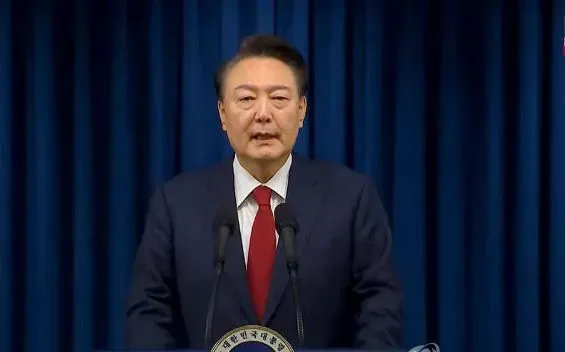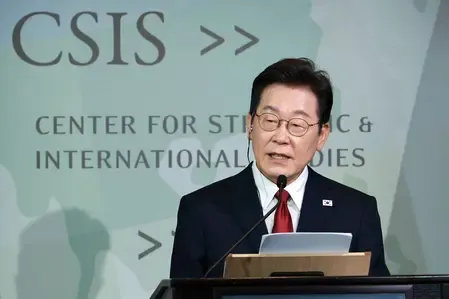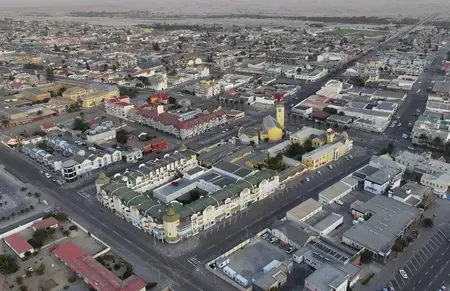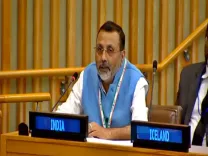South Korea's National Assembly to Decide on Impeachment of President Yoon Amid His Public Apology

Seoul, Dec 7 (NationPress) The National Assembly is preparing to conduct a vote on Saturday concerning an impeachment motion aimed at South Korean President Yoon Suk Yeol following his fleeting effort to declare martial law earlier this week, which has plunged South Korea into a state of political chaos.
The plenary session for this motion is scheduled for 5 p.m., yet it remains uncertain whether the motion proposed by opposition lawmakers will achieve the necessary two-thirds majority for approval, as reported by Yonhap news agency.
Earlier today, President Yoon issued a nationally broadcasted apology for the public distress his miscalculated attempt caused on Tuesday night, committing to refrain from similar actions in the future.
The primary opposition party, the Democratic Party (DP), along with five smaller opposition parties, had previously filed the motion, claiming that Yoon's declaration of martial law violated the Constitution and various laws.
The opposition coalition currently holds 192 seats in the National Assembly, which comprises 300 members.
A two-thirds majority is essential for the motion to succeed, necessitating support from at least eight lawmakers from the ruling People Power Party (PPP).
The PPP has stated it will maintain its policy of opposing the impeachment motion.
Earlier on Saturday, PPP leader Han Dong-hoon remarked that it has become unavoidable for Yoon to resign prematurely, indicating that the President is no longer capable of effectively executing his responsibilities.
These remarks followed Yoon's national address, wherein he mentioned he would leave the decision regarding his term to the PPP.
Among lawmakers from the PPP, Representative Cho Kyoung-tae has voiced his support for Yoon's impeachment, marking the first instance of a ruling party member taking such a stance.
The DP expressed dissatisfaction with Yoon's national address, asserting that his immediate resignation or early removal via impeachment is essential.
If the impeachment motion is approved, the Constitutional Court will determine whether to reinstate or dismiss Yoon from his position.
Should the court uphold the decision, Yoon would become the second President in the history of South Korea to be removed from office through impeachment, following former President Park Geun-hye in 2017.
Furthermore, the National Assembly will conduct a revote on a bill requesting a special counsel investigation into allegations of corruption and electoral interference involving First Lady Kim Keon Hee during the plenary session.
This voting will occur immediately prior to the impeachment vote.
The bill, which Yoon has vetoed for the third time, requires a two-thirds majority to override the veto.
The DP has also indicated it will propose an impeachment motion for Interior Minister Lee Sang-min, a close aide of Yoon, whom the opposition claims played a pivotal role in the failed martial law attempt.
According to legal requirements, an impeachment motion must be voted on within 24 to 72 hours after being reported to a plenary session.









